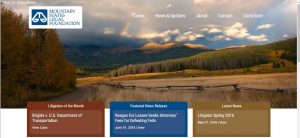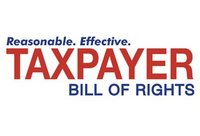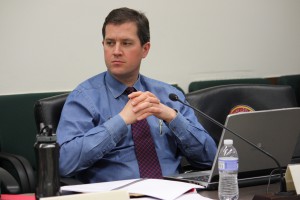A handful of Colorado-based conservative organizations that sought tax-exempt status from the IRS are on the recently disclosed list of groups that were hit with additional scrutiny in the application process. In 2013, the IRS admitted and apologized for delaying the applications for tax-exempt status to groups with “tea party” or “patriot” in the group name.
A group called “TBD Colorado” is also on the list. Complete Colorado has not confirmed at the moment that the group is the same as the “To Be Determined Colorado” initiative launched by Governor Hickenlooper.
Among the list:
- Citizen Awareness Project
- Clear Information Colorado
- Coalition for a Conservative Majority Colorado Springs
- Coalition for a Conservative Majority Denver Chapter
- Colorado Women’s Alliance
- Common Sense Colorado
- Northwest Colorado Alliance, Inc.
- Tea Party Patriots, Denver
- TBD Colorado
- The TABOR Committee
All of the groups appear to have a conservative or right-of-center leaning with the exception of TBD Colorado, if that group is indeed the non-profit arm of the Governor’s effort “to find solutions to the difficult problems facing the state.”
The list was created as a result of a class action lawsuit against the IRS. According to the Washington Times, which broke the story on Sunday:
The tax agency filed the list last month as part of a court case after a series of federal judges, fed up with what they said was the agency’s stonewalling, ordered it to get a move on. The case is a class-action lawsuit, so the list of names is critical to knowing the scope of those who would have a claim against the IRS.
Complete Colorado reported in May of 2013 that The TABOR Committee felt as though it had received unnecessary and unfair questioning regarding the nature of their organizations. That group is on the list.*
“Certainly, we were damaged by this,” said Penn Pfiffner, Chairman of the TABOR Committee. “It’s very likely that we’ll be looking to recover the costs by the delay in responding to the extraordinary questions we got.”
Among the many questions asked in the letter to The TABOR Committee were such items as:
“…please provide each [board officer’s] names and addresses of each individual’s employer/business, the nature of their employment/business…”
“Please provide copies of agendas and/or descriptions of topics covered at each of the organization’s general meetings and events since inception.”
“Please submit copies of all publications and/or advertising materials that have been distributed or will be distributed.”
The list of 426 names does not include 40 other names of organizations that had already opted out of being a part of any class action suit. However, the list of 426 exceeds the original estimate from the IRS of 298 groups that were targeted.
Group list of extra scrutiny targets by IRS
*The 2013 report names the group as The Tabor Foundation. The TABOR Foundation is the (c)(3), and The TABOR Committee is the (c)(4) arm of the same group.
CORRECTION: The original publishing of this article listed Common Sense Colorado as an organization that would not be considered right-of-center or conservative. That is incorrect.
Send us tips at CompleteColorado@gmail.com.
http://completecolorado.com/pagetwo/2016/06/07/colorado-groups-on-irs-targeting-list/



